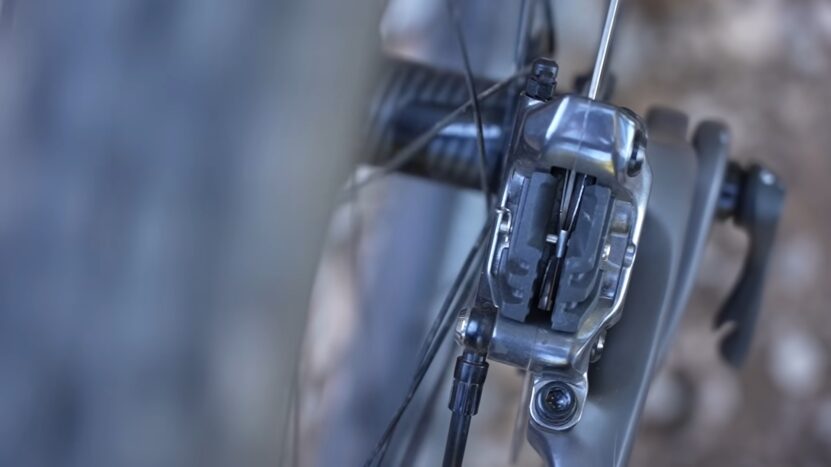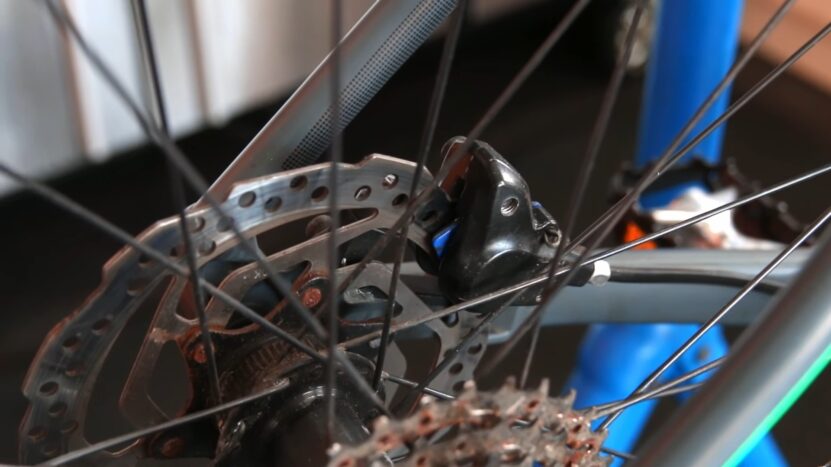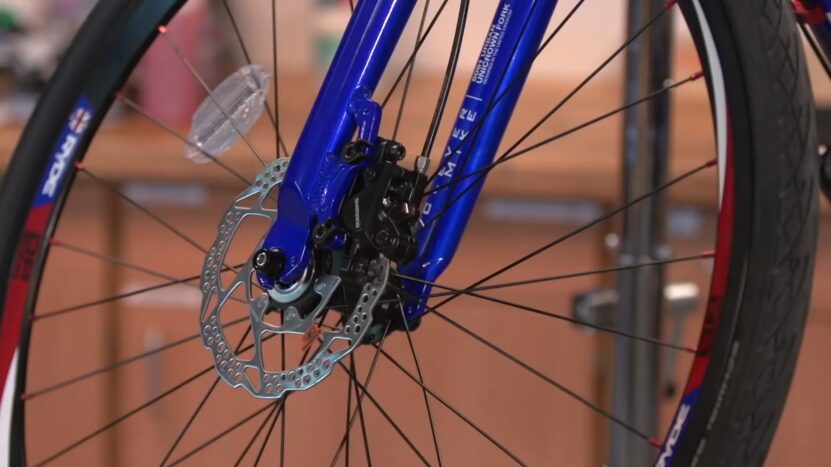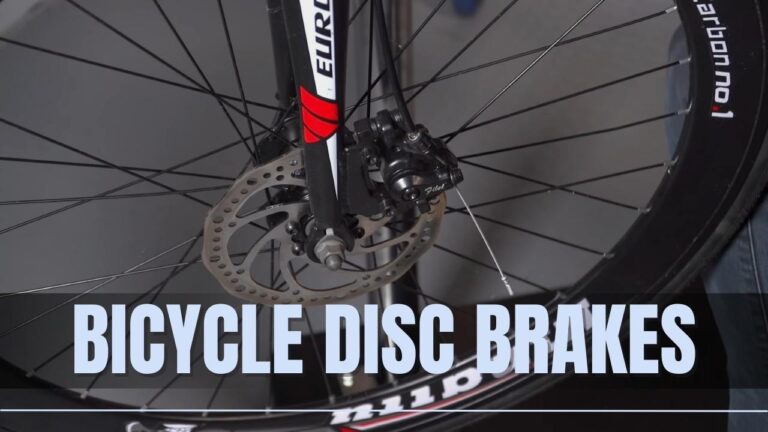Ah, the unmistakable sound of bicycle disc brakes squeaking when you come to a stop. It’s a sound that can be both annoying and concerning. Often, this squeaking is a result of brake pad material accumulating on the rotor.
Regular bike maintenance can prevent this, but if you’re someone who enjoys riding through puddles or muddy trails, then you’re more likely to experience this issue.
An Overview

There’s a symphony of reasons why your bicycle disc brakes might be giving you a squeaky concert. The top of the chart is worn-out brake pads. When these pads thin out, they can’t cozy up to the rotor as they should, leading to that ear-piercing squeal.
Dirt, grime, or tiny debris lodged between the pads or on the rotor can also be culprits. Imagine trying to slide smoothly on a dance floor littered with pebbles. Not so smooth, right? The same goes for your brakes. A good cleaning session with a bicycle-specific brake cleaner and a lint-free cloth can work wonders. And remember, always read the label on the cleaner for best results.
However, if you’ve given your brakes a spa day and they’re still singing the squeaky blues, it might be time to invest in new pads. These little guys work hard, and over time, they wear out. On average, depending on your riding style and conditions, you might find yourself replacing them every few months.
When it’s time to replace those brake pads, you might feel overwhelmed by the choices out there. But fear not! Consulting with a seasoned bicycle mechanic or a trusted retailer can guide you to the perfect fit for your bike’s disc brakes. Different riding styles and terrains require different types of brake pads, so it’s essential to get the right match.
Remember, the key to a squeak-free ride is regular maintenance, timely replacements, and choosing the right components for your biking adventures. Safe riding!
Why Do Bike Brakes Squeak?
It’s a sound that can make any cyclist cringe – the high-pitched squeal of bike brakes. But what causes this annoying noise? Let’s break it down.
Bike brakes mainly squeak for two primary reasons:
- Worn-out Brake Pads: If your brake pads are too worn down, they’ll need replacing. A telltale sign is if you observe metal on the pads. This means the pad material has worn away, and the metal backing is now exposed.
- Misalignment: If the brake pads appear in good shape but you’re still hearing that squeal, they might just need a little adjustment. This could be due to the pads not making even contact with the rotor or wheel rim.
I Bought New Bike Disc Brakes, But They Are Squeaking

Got a new bike and already dealing with squeaky disc brakes? First off, take a deep breath. It’s a common issue and often has a straightforward solution.
- Brake Pad Contamination: The usual suspect is contamination. Brake pads can get dirty or oily, leading to that dreaded squeal. A thorough cleaning of the brake pads and rotor with a clean cloth can often solve the problem. If contamination persists, you might need new pads.
- Pad Alignment: Ensure the brake pads are aligned correctly within the caliper. Misaligned pads can cause uneven contact, leading to noise.
If you’ve tried the above and still face issues, it might be time to see a mechanic. Sometimes, the rotor or caliper might be damaged and need replacement.
Squeaking In Wet Conditions
Rainy rides can be fun, but squeaky brakes in wet conditions? Not so much. Here’s why this might be happening:
- Worn Brake Pads: Just like in dry conditions, worn-out brake pads can be a culprit. They might not grip the rotor effectively, leading to that squeal.
- Dirt and Debris: Wet conditions can cause more dirt to stick to your brake pads and rotors. Regular cleaning can help prevent this.
- Caliper Misalignment: Especially with disc brakes, if the calipers aren’t aligned correctly, the pads might rub against the rotors, causing noise.
How Do I Stop This?
That unmistakable squeak from your bike’s disc brakes can be quite the mood dampener on a pleasant ride. But fret not! Here’s a guide to help you silence those squeaky brakes.
- Dirt and Debris: Sometimes, the culprit is just some dirt or tiny debris lodged between the brake pads and the rotor. A simple cleaning can often solve this issue. Use a soft brush or cloth to gently clean the brake pads and rotor.
- Worn-out Brake Pads: If the brake pads are worn down, they won’t make proper contact with the rotor, leading to that squeaking sound. In this case, it’s time for a replacement.
- Damaged Rotors: If your rotors are warped or have sustained damage, they can cause the brakes to squeak. You might need to either straighten them out or replace them altogether.
Will WD 40 Fix the Issue?
WD-40 is indeed a jack-of-all-trades when it comes to household fixes. But can it silence your bike’s vocal brakes? The answer is yes, but with caution.
WD-40 can help in lubricating and cleaning the brakes. Here’s how you can use it:
- Ensure the brakes are clean. Remove any visible dirt or debris.
- Spray a small amount of WD-40 onto a clean cloth.
- Gently wipe the brake pads with the cloth, ensuring you don’t oversaturate them.
- Use a dry cloth to remove any excess WD-40.
However, if the squeaking persists even after using WD-40, it might be time to consider other solutions, like replacing the brake pads.
Closing Thoughts

Bike disc brakes squeaking can be a sign of various issues, from simple dirt accumulation to more serious concerns like worn-out components. Regular maintenance and timely interventions can ensure that your rides remain smooth and squeak-free.
Remember, your safety is paramount, so if in doubt, always consult with a professional. Safe cycling!

